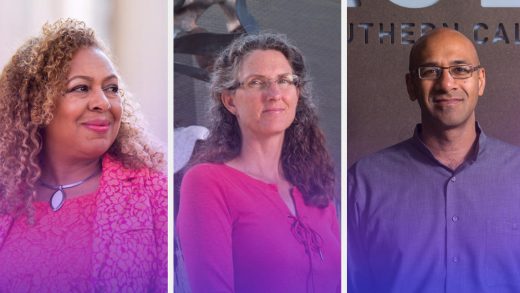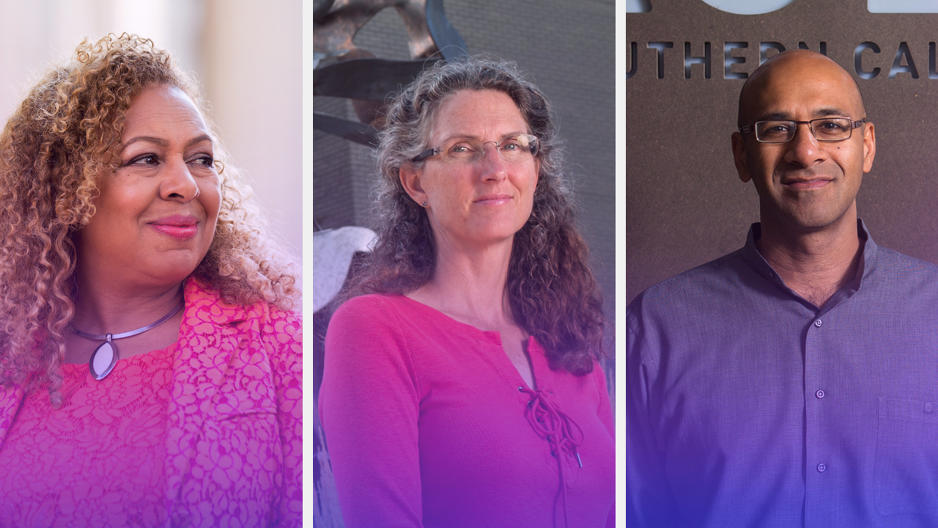This Is What Sparks And Sustains A Genius
In his book Outliers, Malcolm Gladwell suggests that becoming a world-class expert takes 10,000 hours of practice. Getting to genius status, however, takes more than time; it’s a passion that turns into a lifelong quest for more knowledge.
Since 1978 the MacArthur Foundation has been recognizing people who are on that journey with the MacArthur Fellows Program, aka “Genius Grants.” In 2016, 23 fellows were chosen to further their work with five-year, $625,000 awards based on their exceptional creativity, track record of significant achievement, and promise for discovering game-changing advances.
In today’s over-stimulated world, pursuing a passion takes discipline and hard work. A look at the journey of a few of the 2016 MacArthur Fellows, however, uncovers some similarities among those who are geniuses in their fields.
History Books Didn’t Represent Her Life Experience
For Kellie Jones, a love of art turned into a crusade to tell the stories of forgotten or overlooked African-American artists. Jones grew up around artists in New York City and attended what is now the LaGuardia School of Music & Art and Performing Arts. During her art history lessons, she noticed a discrepancy in the books.
“History never reflected people of color,” she says. “I knew I didn’t want to be an artist, and I realized there was a role for somebody to be a curator and writer, someone who could tell these stories.”
For three decades, Jones has been telling the artists’ stories through art exhibits and books. Her work prompted a “re-evaluation of the view that African-American art of the period was predominantly figurative or representational,” according to the MacArthur Foundation website. For example, “Now Dig This! Art and Black Los Angeles, 1960-1980” at the Hammer Museum in Los Angeles was named one of the best exhibitions of 2011 and 2012 by Artforum. And “Witness: Art and Civil Rights in the 1960s” at the Brooklyn Museum in 2014 celebrated the 50th anniversary of the Civil Rights Act.
“People want to know these stories; They want a broader tale about those who have contributed to the world,” says Jones, an associate professor of art history and archeology at Columbia University. “The last Witness we held, 75,000 people came, and not all were African-Americans.”
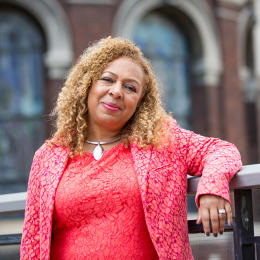
Motivation comes from the intersection of pleasure and interest, says Jones. “Research is about a certain obsession with a topic and wanting to know the answers,” she says. “I wanted to make art history reflect the world we live in, and that’s been one of my goals.
“I also believe in the evidence that objects give us,” Jones continues. “Sometimes they offer us the most reliable evidence of history. Interesting, beautiful, and full of information, the objects keep pushing me forward.”
Jones is also inspired by the artists whose stories she wants to tell. “Lorna Simpson, David Hammons, and Betye Saar never gave up,” she says. “They made their objects whether or not they were considered to be in style. They just kept making them. If they can stick around and make art, I can stick around and tell their story.”
Connecting With A Forgotten Generation
Anne Basting stumbled onto her genius journey when she found a unique way to connect with older adults who have cognitive impairment. A theater artist and educator, Basting always had an interest in the aging population, often including older characters in her writing. In 1996, she wondered if the improvisation techniques she taught to healthy adults could be beneficial to Alzheimer’s and dementia patients.
Working with a group of memory-impaired adults, Basting first tried reminiscence-based techniques. She showed the group a picture of the Marlboro Man, hoping to tap into a deep memory of when this character was used to advertise cigarettes. When no one responded, she asked, “Tell me what you want to call this guy?”
“Someone said ‘Fred,’” she recalls. “And I said, ‘Fred who?’ And they said ‘Fred Astaire.’ And then a 45-minute story unraveled. And we were laughing and singing, and it was a completely transformative moment. It felt like a miracle.”
The discovery prompted Basting to start the nonprofit TimeSlips Creative Storytelling, a therapy protocol that addresses cognitive impairment by shifting from memory to imagination, creating stories and poems in response to cues. Online and in-person programs have helped long-term care facilities and caregivers around the world.
Basting says the shift is simple but profound. “The arts are an emotional and symbolic language,” says Basting. “Cocreating [with a group] creates a shared language, crossing differences you wouldn’t cross otherwise, such as age, gender, culture, socioeconomics. It’s kind of a magic language that allows people to see each other differently.”
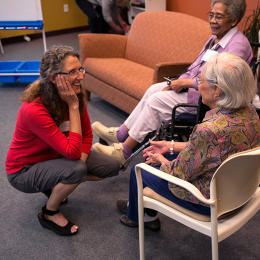
After training more than 2,000 facilitators, Basting says she feels she’s just getting started, and her goal is to make TimeSlips standard practice and scale it. And she has a good reason. “When I’m working at this intensely one-on-one level, there is a deep human connection,” says Basting. “The power comes when it works, and it works every time. You are present for someone and present for each other, gifting imagination. It’s a profound experience.”
Helping families is another source of strength. “Aging has been seen as this horrible thing; people don’t want to do it,” says Basting. “Dementia particularly sets off a lot of alarm bells, and it’s an epidemic. It’s horrifying, and families are in despair,” she observes. “When you give them this tool of discovery, it’s so beautiful. There is a joy of having people realize the power of the approach. It drives you to keep going.”
Defending The Rights Of Immigrants
For Ahilan Arulanantham, the topic of refugees is more than just an election platform. For 16 years, the human rights lawyer has been working to secure the right to due process for individuals facing deportation.
Arulanantham’s journey began when he was 10 years old, when members of his family fled the civil war in Sri Lanka and moved to the U.S. “Many of my relatives came to live with us and ended up staying with us for several years,” he says. “I had a firsthand look at the pain and difficulty that displacement can cause.”
The experience inspired Arulanantham to become an attorney so he could defend the rights of refugees. Through advocacy and successful litigation of a series of landmark cases, Arulanantham and his team have helped immigrant detainees get legal representation and limited the government’s power to detain them indefinitely.
Arulanantham, who is director of advocacy and legal director for the ACLU of Southern California, says has seen the detention system change, and not all for the better. “We’re now detaining more people than ever—around 38,000 on any given day,” he says.
They go to sleep in an immigration detention prison. In theory, it is a civil case rather than criminal, which means you have no right to a lawyer or to ask a judge to release you. There is also no guarantee of a speedy trial. In that sense it’s worse.
But some things are better. “There is growing recognition that the harm caused by deportation is severe,” he says. For example, the City of New York runs a public defense system to guarantee representation for a detained New Yorker, which Arulanantham calls remarkable. “It’s something that would have been unimaginable a decade ago,” he says. “We’ve seen some positive development, but overall, immigration enforcement is more draconian than when I started.”
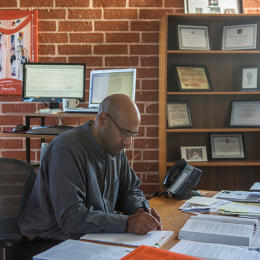
Yet three things keep him going: “The first is winning,” he says. “Although we lose a fair amount, we also win a fair amount, and that produces significant change in people’s lives. Knowing that by working hard you can see results over time is motivating.”
Another source of motivation is the relationships Arulanantham forms with clients. “My last case was two years trying to establish the right to counsel for children going through deportation,” he says. “I have had clients such as a 14-year-old girl from El Salvador and a 10-year-old boy whose father was killed by gangs. Knowing that I’m working for such people and trying to make their lives better helps.”
Arulanantham also takes time to find balance in his life, such as playing soccer, singing, and goofing off with his family and friends. “You can’t be a person who works without any outside interest at all,” he says.
As a MacArthur Fellow, Arulanantham hopes to open minds. “My experience of being a child and seeing my own cousins and aunts and uncles go through this has made me understand more clearly the difficulty of what every immigrant and refugee goes through,” he says. “Immigration policy is complex, and we are not going to agree on everything. I wish people would approach it with a little less judgment.”
Fast Company , Read Full Story
(13)

